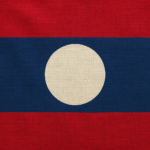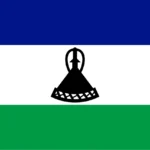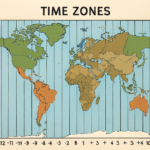
Japan is over 70% mountainous terrain with approximately 18% land mass suitable for human settlement. Japanese cities are typically sprawling and densely populated. Tokyo, a megalopolis and the capital of Japan, is located on Honshu island. Central Tokyo has a population of 12 million people, with the population of the Greater Tokyo Area estimated at over 35 million people.
Raw horse meat is a popular entree in Japan. Sliced thinly and eaten raw it is called basashi.
Over 70% of Japan consists of mountains. The country also has over 200 volcanoes.
A musk melon (similar to a cantaloupe) can sell for over 31,473 yen ($300.00).
The literacy rate in Japan is almost 100%.
The two major religions in Japan are Shinto and Buddhism. While religion does not play a major role in the life of the average Japanese, religious ceremonies are usually held at births, weddings, and funerals. On New Year’s Day visiting a temple or shrine is also a common custom. About 1% of the population follow Christianity, which was heavily persecuted in Japan prior to the Meiji Restoration in 1873.
There are vending machines in Japan that dispense beer!
Animated Japanese films and television shows (.i.e.: Anime) account for 60% of the world’s animation-based entertainment. So successful is animation in Japan, that there are almost 130 voice-acting schools in the country.
Japanese is the official language of Japan. Many Japanese also have some ability in writing and speaking English as it is a mandatory part of the curriculum in the Japanese educational system. Japanese uses four different writing systems; Kanji (Chinese characters), Hiragana (phonetic alphabet for native words), Katakana (phonetic alphabet for foreign words), and Romaji (western alphabet used to write Japanese). Japanese vocabulary has been strongly influenced by loanwords from other languages, with most loanwords coming from Chinese and English.
21% of the Japanese population is elderly, the highest proportion in the world.
In the past, the Japanese court system has had a conviction rate as high as 99%!
Japanese prisons (as of 2003) operated at an average of 117% capacity.
Raised floors help indicate when to take off slippers or shoes. At the entrance to a home in Japan, the floor will usually be raised about 6 inches (15.24 cm.) indicating you should take off your shoes and put on slippers. If the house has a tatami mat room, its floor may be raised 1-2 inches (2.54-5.08 cm.) indicating you should take off your slippers.
The climate of Japan varies considerably depending on the region and season. Summer is usually very hot and humid, known to the Japanese as “mushiatsui”. From mid June there is a rainy season which lasts around one month. Winters are usually mild, with the northern areas of Japan receiving more snow. Spring and autumn are usually sunny with mild temperatures.
Japanese people have an average life-expectancy that is 4 years longer than Americans.
Some men in Japan shave their heads as a form of apology.
Japan has the second lowest homicide rate in the world, but is also home to the extremely spooky suicide forest, aokigahara.
Japan has produced 15 Nobel laureates (in chemistry, medicine and physics), 3 Fields medalists and one Gauss Prize laureate.
Younger sumo-wrestlers are traditionally required to clean and bathe the veteran sumo-wrestlers at their wrestling “stables”.
Japan’s unemployment rate is less than 4%.
Japanese is the official language of Japan. Many Japanese also have some ability in writing and speaking English as it is a mandatory part of the curriculum in the Japanese educational system. Japanese uses four different writing systems; Kanji (Chinese characters), Hiragana (phonetic alphabet for native words), Katakana (phonetic alphabet for foreign words), and Romaji (western alphabet used to write Japanese). Japanese vocabulary has been strongly influenced by loanwords from other languages, with most loanwords coming from Chinese and English.
Japan consists of over 6,800 islands.
“Tetsuo: Iron Man” (no relation to the comic book, or Robert Downey, Jr. film), a relatively popular, extreme, “Cyberpunk” film (a “cyberpunk” film is a science fiction film that involves technology – and the abuse thereof – and social unrest), was based on a play the director Shinya Tsukamoto wrote and directed in college.
A Paleolithic culture from about 30,000 BC is the first known inhabitants of Japan.
Prolific Japanese film-maker Takahi Miike made up to 50 films in a decade during the peak of his career.
Frequently Asked Questions about Japan:
- What is the capital of Japan and what is it known for?
- Capital: Tokyo is the capital of Japan. It’s a sprawling metropolis known for its neon lights, towering skyscrapers, and bustling atmosphere.
- What it’s known for: Tokyo offers a unique blend of modern and traditional experiences. Visitors can explore iconic landmarks like the Tokyo Tower and Sensō-ji Temple, delve into the anime and manga culture of Akihabara, or experience the serene beauty of Shinjuku Gyoen National Garden. The city is also a haven for foodies, boasting a diverse culinary scene ranging from Michelin-starred restaurants to bustling street food stalls.
- What is the currency used in Japan and are there any customs I should be aware of?
- Currency: The Japanese Yen (JPY) is the official currency. While credit cards are becoming more widely accepted, especially in major cities, carrying cash is still recommended for smaller shops and restaurants.
- Customs: Japan is known for its emphasis on politeness and respect. Here are some key customs to be aware of:
- Bowing: A slight bow is a common greeting gesture. The deeper the bow, the more respect it conveys.
- Shoe removal: Shoes are typically removed when entering temples, shrines, and some traditional Japanese homes. Look for designated areas to leave your shoes.
- Using chopsticks: While utensils may be provided at some restaurants, practicing proper chopstick etiquette is appreciated.
- Tipping: Tipping is not customary in Japan. A simple “arigatōgozaimashita” (thank you very much) is sufficient.
- What are some of the must-see sights in Japan?
- Mount Fuji: An iconic symbol of Japan, Mount Fuji is a dormant volcano and a UNESCO World Heritage Site.
- Hiroshima Peace Memorial Park: A sobering reminder of the atomic bombings, this park features the Hiroshima Peace Memorial Museum and the Atomic Bomb Dome.
- Kyoto: The former capital of Japan, Kyoto is steeped in history and tradition. Explore Kiyomizu-dera Temple, Arashiyama Bamboo Grove, and the Fushimi Inari-taisha shrine with its thousands of vermillion torii gates.
- Okinawa: This island chain offers stunning beaches, a unique cultural blend of Japanese and Ryukyuan influences, and a relaxed atmosphere.
- Japanese Alps: For nature enthusiasts, the Japanese Alps offer breathtaking scenery, hiking trails, and charming mountain towns.
- What is the best time to visit Japan?
The best time to visit Japan depends on your preferences:
- Spring (March-May): Pleasant weather, beautiful cherry blossoms (sakura), but can be crowded.
- Summer (June-August): Hot and humid, ideal for beach holidays, but typhoon season.
- Autumn (September-November): Stunning fall foliage (momijigari), comfortable temperatures.
- Winter (December-February): Ideal for winter sports enthusiasts, possible snow in some areas.
- How easy is it to get around Japan?
Japan boasts an efficient and well-connected transportation system:
- Trains: The Shinkansen bullet train network offers a high-speed and comfortable way to travel between major cities. Local trains are also extensive and affordable.
- Buses: Intercity and local buses are convenient for reaching smaller towns and rural areas.
- Japan Rail Pass: For extended stays, consider purchasing a Japan Rail Pass for discounted travel on JR trains.
Renting a car can be challenging due to language barriers and complex traffic regulations. However, taxis are readily available in major cities.








